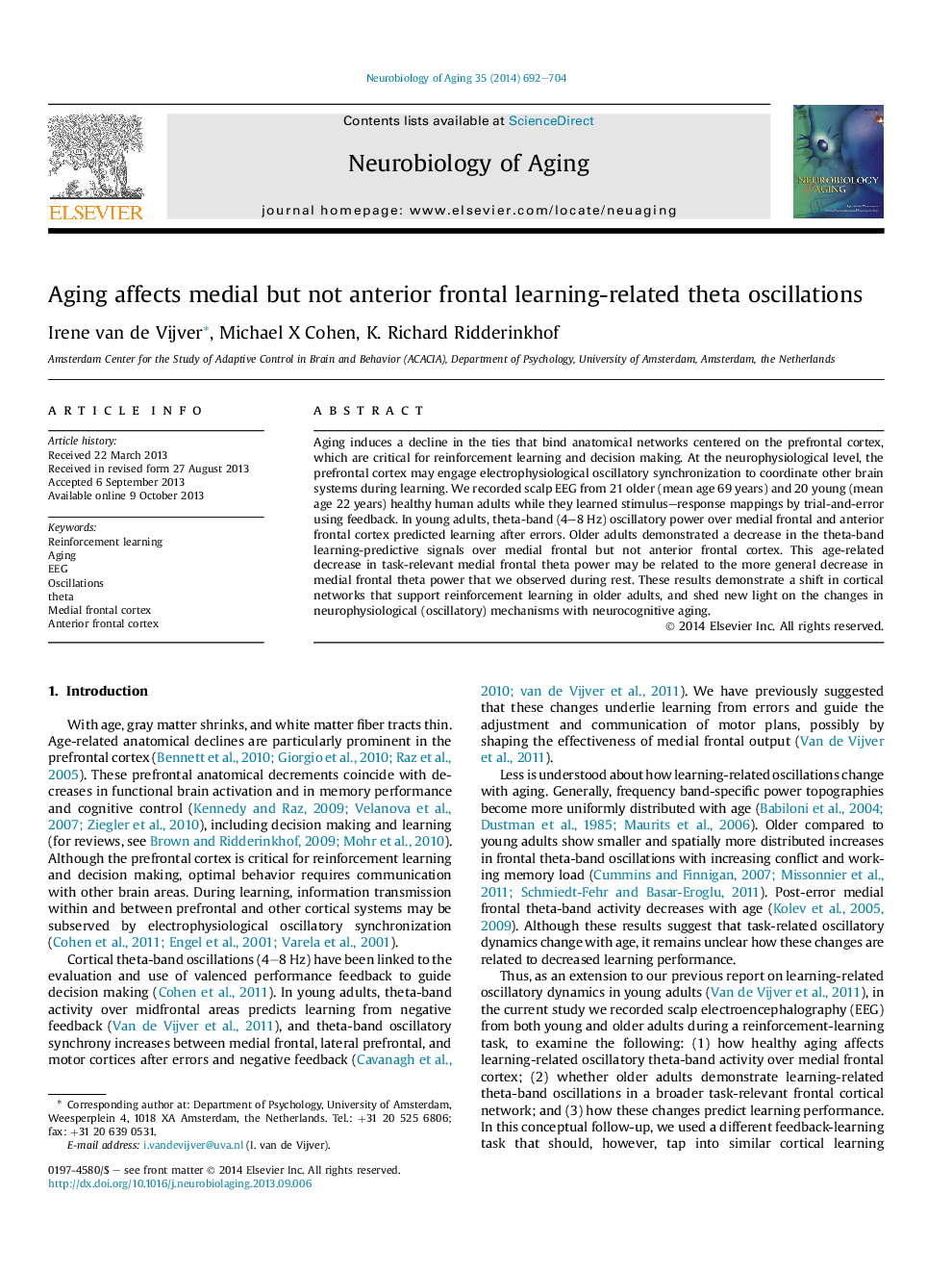| Article ID | Journal | Published Year | Pages | File Type |
|---|---|---|---|---|
| 6806335 | Neurobiology of Aging | 2014 | 13 Pages |
Abstract
Aging induces a decline in the ties that bind anatomical networks centered on the prefrontal cortex, which are critical for reinforcement learning and decision making. At the neurophysiological level, the prefrontal cortex may engage electrophysiological oscillatory synchronization to coordinate other brain systems during learning. We recorded scalp EEG from 21 older (mean age 69 years) and 20 young (mean age 22 years) healthy human adults while they learned stimulus-response mappings by trial-and-error using feedback. In young adults, theta-band (4-8 Hz) oscillatory power over medial frontal and anterior frontal cortex predicted learning after errors. Older adults demonstrated a decrease in the theta-band learning-predictive signals over medial frontal but not anterior frontal cortex. This age-related decrease in task-relevant medial frontal theta power may be related to the more general decrease in medial frontal theta power that we observed during rest. These results demonstrate a shift in cortical networks that support reinforcement learning in older adults, and shed new light on the changes in neurophysiological (oscillatory) mechanisms with neurocognitive aging.
Related Topics
Life Sciences
Biochemistry, Genetics and Molecular Biology
Ageing
Authors
Irene van de Vijver, Michael X Cohen, K. Richard Ridderinkhof,
